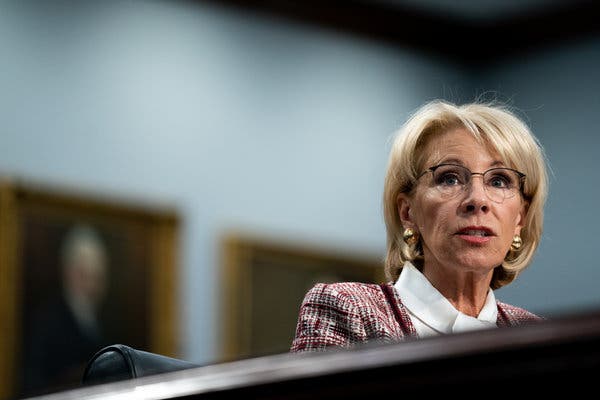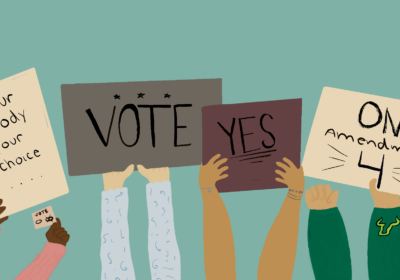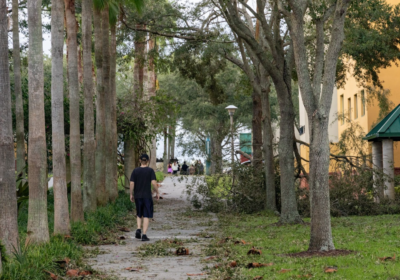DeVos shouldn’t exclude DACA students from COVID-19 relief

The Coronavirus Aid, Relief and Economic Security (CARES) Act, the stimulus package enacted into law March 27, offers benefits to public universities as well as students eligible for federal grants.
As of Tuesday, however, U.S. Secretary of Education Betsy DeVos made it clear that students who are a part of the Deferred Action for Childhood Arrivals program (DACA) will not be eligible for any of this assistance.
DACA is an immigration policy initiated through executive order in 2012 by former president Barack Obama. It gave children brought into the country without documentation federal protection from deportation.
“The CARES Act makes clear that this taxpayer-funded relief fund should be targeted to U.S. citizens, which is consistently echoed throughout this law,” the department announced Tuesday.
The CARES Act provided $30 billion for an Education Stabilization Fund, $14 billion of which is dedicated to colleges and universities. Institutions that receive this money are required to use half of the money they received for emergency grants.
USF will be allocated close to $35 million, according to the U.S. Department of Education.
All who are eligible for federal student loans may be eligible for these emergency grants that will help students through the COVID-19 (coronavirus) crisis.
Unfortunately, the Education Department can prohibit institutions from giving grant money to undocumented students.
Despite the secretary’s claims that this rule is consistent in the law, it seems to contradict the CARES Act’s stance on stimulus checks. DACA recipients are eligible for the $1,200 stimulus checks also included in the bill, therefore it seems odd that they would not qualify for these grants.
Institutions of higher education should not deny students the money they are entitled to. DACA recipients pay their taxes just like any other student and are thus entitled to these benefits. A 2019 report from the Center for American Progress, a think tank based in Washington, D.C., found that DACA recipients paid $5.7 billion in federal taxes and $3.1 billion in state and local taxes in 2017.
Further, DACA recipients need assistance just like every other student. They may have lost their jobs in recent weeks and still need to pay for rent, groceries and everything else a student needs to survive.
As of Wednesday, DACA is still the law of the land, though the Supreme Court is still set to decide on the program’s fate in the coming months after the Trump administration attempted to rescind the program.
Institutions of higher learning should make clear to the Department of Education that ignoring DACA recipients will not be tolerated. Heads of universities and colleges should stand firmly with their students and demand the Department of Education change its guidelines.
Jared Sellick is a senior majoring in political science.






